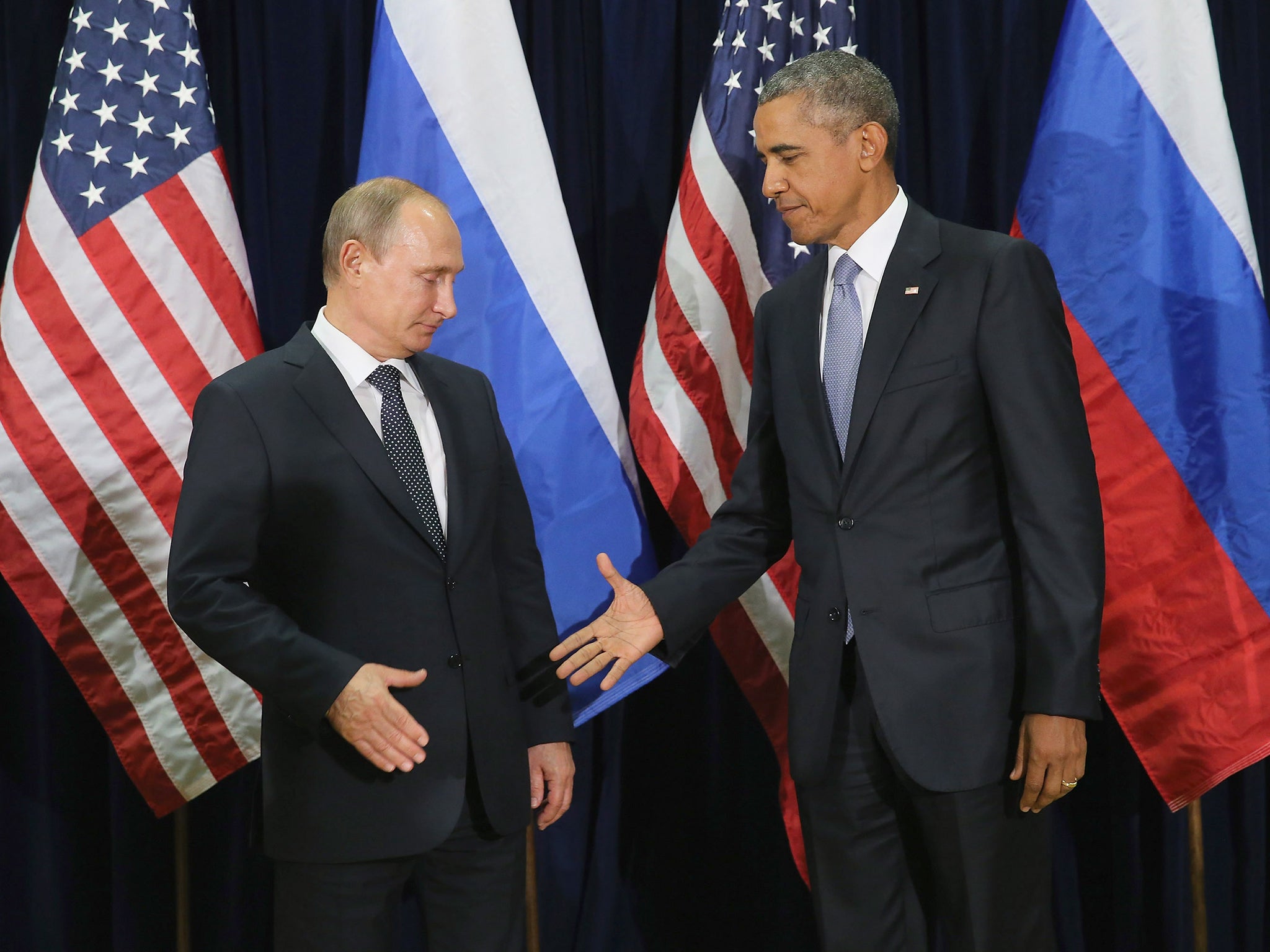White House says it is concerned about reports that Russia is moving artillery into Syria
In the face of fraying peace talks, the US is urging Russia to focus its efforts on ‘supporting the diplomatic process'

Your support helps us to tell the story
From reproductive rights to climate change to Big Tech, The Independent is on the ground when the story is developing. Whether it's investigating the financials of Elon Musk's pro-Trump PAC or producing our latest documentary, 'The A Word', which shines a light on the American women fighting for reproductive rights, we know how important it is to parse out the facts from the messaging.
At such a critical moment in US history, we need reporters on the ground. Your donation allows us to keep sending journalists to speak to both sides of the story.
The Independent is trusted by Americans across the entire political spectrum. And unlike many other quality news outlets, we choose not to lock Americans out of our reporting and analysis with paywalls. We believe quality journalism should be available to everyone, paid for by those who can afford it.
Your support makes all the difference.The US has said it is concerned about Russia’s efforts to re-arm Syrian president Bashar al-Assad's forces as peace talks, the most serious efforts to stop the war, are crumbling in Geneva.
Russia appears to be re-locating artillery weapons to north Syria, indicating that the Syrian government and its allies are gearing up for an another attack on the divided city of Aleppo.
“We've been concerned about reports of Russia moving materiel into Syria,” Ben Rhodes, deputy national security adviser to President Barack Obama, said in Riyadh, Saudi Arabia, where Obama was at a summit with Gulf Arab leaders.
“We think it would be negative for Russia to move additional military equipment or personnel into Syria. We believe that our efforts are best focused on supporting the diplomatic process,” Mr Rhodes said.
The ceasefire began to fall apart two weeks ago near Aleppo, which is divided between Syrian government, rebel forces and ISIS.
Mr Obama phoned Mr Putin to have an “intense conversation” earlier this week.
“President Obama said directly to President Putin when they spoke on the phone several days ago that Russia should focus its efforts on the diplomatic process, on maintaining the cessation of hostilities and working with the Syrian government to get them to take seriously the process of negotiation and ultimately transition,“ Mr Rhodes added.
After the phone call on Monday, Mr Putin said in a statement that he was committed to strengthening the ceasefire but again reiterated that Syrian forces are targeting “terrorists” when US-supported rebels have been attacked.
The news comes just weeks after Russia had declared a partial withdrawal of its support from Syria while keeping men on the ground, but the Kremlin is now using more helicopters to provide aid, according to analysts.
Russia’s air force began bombing rebel-held areas of Syria in support of Mr Assad last September and has continued airstrikes even since the announced withdrawal in March.
States opposed to Mr Assad, however, have been arming and training rebel groups via Turkey and Jordan, which has been partly overseen by the US Central Intelligence Agency.
After a five-year war and the death of 250,000 people, millions of Syrian refugees are fleeing to Europe and 6.5 million more are displaced within the country, according to the United Nations High Commissioner for Refugees.
More artillery provided by Vladimir Putin to government forces would send peace talks and the failed truce into further meltdown.
Meanwhile Mr Obama has been hesitant to send troops to Syria in a war which has no end in sight and which has loomed as a large shadow over his foreign policy record.
Most members of the Syrian opposition in Geneva are speculated to leave by Friday, after a regime air strike killed dozens this week.
UN Special Envoy Staffan de Mistura said he will assess on Friday whether Geneva peace talks can continue, but did not indicate what he expected would happen.
The talks in Geneva have stalled as both sides accuse each other of breaking the ceasefire, which started in late February and lasted for just six weeks.
One senior diplomat has warned that peace talks might take a year to resume if they are abandoned.
Both sides, however, wish to stop the rise of the Islamic State, which has carried out terrorist acts against Russia and the US alike, and to stem the continuing tide of refugees into Europe.
But the opposition to Mr Assad said the truce could not go on while his government continued to carry out “massacres” of its own people.
“If the regime insists on stubbornness, obstruction and rejection of international resolutions, we will continue our revolution,” Abdullah Othman, head of the politburo of the Levant Front rebel fighting group, told Reuters.
“Our only option is to realise the revolution's goals.”
In the absence of Syrian government members attending peace talks, France said it would consider meeting with the US and European powers within the next two weeks to work out what it needs to do.
In March 2011, pro-democracy protesters were crushed in the Southern city of Deraa. National outrage and demonstrations ignited a civil war.
The country is now fragmented into groups, some controlled by the government, others by rebel forces or Kurdish YPG militia, as well as ISIS territories.
Additional reporting by agencies.
Join our commenting forum
Join thought-provoking conversations, follow other Independent readers and see their replies
Comments